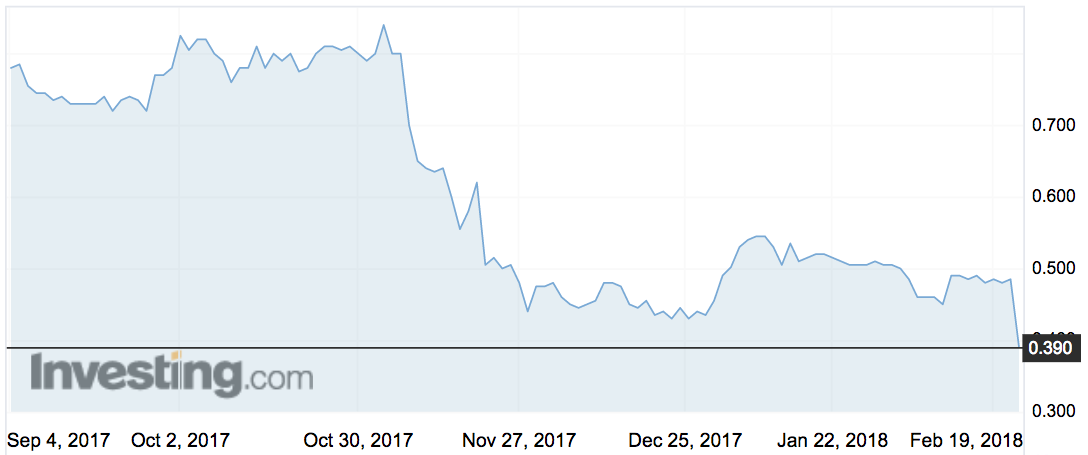BPS shares fall 32pc as company slashes forecasts and board members

Pic: Justin Paget / DigitalVision via Getty Images
Bartercard owner BPS Technology has lost two board members and downgraded its guidance again, as the new chief executive cleans house.
BPS shares (ASX:BPS) plummeted in response, falling almost 32 per cent to 33c on Thursday.
Tony Weise, the CFO and company secretary, and Brian Hall, chief of BPS’s largest investment Bartercard, have resigned from their jobs and from the board.
The board now consists of Murray D’Almeida, who has chaired the company since it listed in 2014, director Garth Barrett who joined a 12 months ago, and CEO and managing director Iain Dunstan who stepped up in November last year.
The company is still looking for new board members.

More cuts
BPS (ASX:BPS) also cut its expected earnings before interest, tax, depreciation and amortisation (EBITDA) almost in half.
Previous guidance was for EBITDA of $4 million to $4.5 million.
Now they expect $2.7 million.
“The main driver for the lower performance compared to previous guidance is the delay in the realisation of forecast costs savings,” the company said.
It also plans to write off $30.1 million in intangibles, business development costs and previously capitalised items.
Of that, $20.4 million is from the Bartercard business.
- Bookmark this link for small cap breaking news
- Discuss small cap news in our Facebook group
- Follow us on Facebook or Twitter
- Subscribe to our daily newsletter
Further, the company has restated the last three years of remuneration reports “due to items being previously omitted or incorrectly disclosed”.
One of those disclosures was that Broni International, an entity jointly controlled by Mr Hall and Mr Wiese, received consulting fees of $73,26, $93,600, and $95,400 in 2015, 2016 and 2017 respectively, and was therefore a related party of BPS.
BPS fought off a motion to spill the board last year as Mr Dunstan embarked on a plan to revive the ailing company.
Best known for its Bartercard business trading system, BPS plans to extend its payments platform to consumers and cut $6 million in costs over three years.
UNLOCK INSIGHTS
Discover the untold stories of emerging ASX stocks.
Daily news and expert analysis, it's free to subscribe.
By proceeding, you confirm you understand that we handle personal information in accordance with our Privacy Policy.








